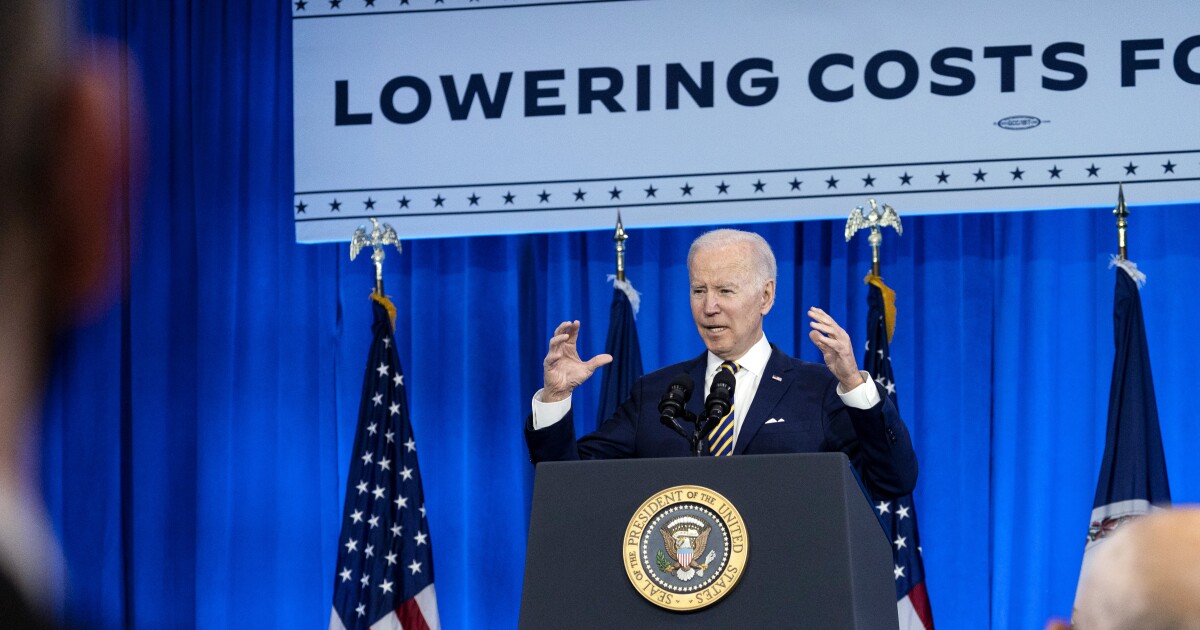

Recent reports that the United States sent oil from its emergency stockpile to China have touched off a wave of sharp Republican-led criticism in recent days, though experts contended that the sales were legally required.
The controversy started when Reuters reported last week that the U.S. had exported more than 5 million barrels of oil from its Strategic Petroleum Reserve to Europe and Asia last month, including shipments sent to the Netherlands, India, and China.
DUTCH FARMING PROTESTS SPREAD ACROSS EU, HIGHLIGHTING COSTS OF CLIMATE GOALS
Those purchases were detailed in an April news release from the Department of Energy, which noted Chinese state-owned gas giant Unipec on its list of 12 companies that had been awarded contracts to purchase SPR crude oil.
News of the sale to Unipec sparked outrage among some Republicans. The U.S. sales to China also come amid a global energy crisis that has touched off record-high gas prices with little, if any, relief in sight for U.S. consumers.
Some accused President Joe Biden of failing to act in the country’s best interests by selling to China, which has massively scaled up its imports of discounted Russian crude following the Kremlin’s invasion of Ukraine.
“Biden sending oil from the United States Strategic Petroleum Reserve overseas smells to high heaven,” Rep. Drew Ferguson (R-GA) said on Twitter last week. “While Americans are paying record high prices at the pump, this administration decides to give our oil to the EU and China.”
Biden sending oil from the United States Strategic Petroleum Reserve overseas smells to high heaven.
While Americans are paying record high prices at the pump, this administration decides to give our oil to the EU and China. https://t.co/baiC7cU9Bk
— Congressman Drew Ferguson (@RepDrewFerguson) July 7, 2022
Fox News host Tucker Carlson went even further, suggesting in a recent broadcast that Biden should be “impeached” for making the sale.
China has upped its imports of Russian crude as well, breaking with the West as it continues to import record amounts of discounted Russian supply.
In May, Bloomberg reported that Unipec hired at least 10 new ships to transport more Russian crude‚ “a fivefold increase on the number of vessels booked for the trade a month earlier.”
But the U.S. has long exported oil overseas, including to China, as data from the Energy Information Administration illustrate.
Last fall, the U.S. authorized two separate releases of SPR oil to China, totaling a combined 4 million barrels in October and November.
But the U.S. is legally required to sell its crude oil to the highest bidder, as noted by longtime Washington Post fact-checker Glenn Kessler, with exceptions only in limited cases (such as selling to sanctioned companies, for example). Congress in 2015 repealed a 40-year-old law preventing the export of U.S. crude oil.
“This means that the SPR cannot dictate whether companies export crude oil received from the reserve,” DOE press secretary Charisma Troiano told Kessler. “U.S. companies are permitted to place bids on SPR crude oil; DOE cannot dictate what selected bidders will do with the SPR crude oil after delivery.”
And, as DOE notes on its website, once companies purchase the oil, the U.S. government has no authority to dictate where it is shipped.
This sentiment was echoed by petroleum analysts and former administration officials alike — including Robert McNally, who served on the National Security Council under former President George W. Bush. In his own interview with the Washington Post, he dismissed the buzz as a “complete nothingburger” and noted that current law allows SPR drawdowns to be exported.
CLICK HERE TO READ MORE FROM THE WASHINGTON EXAMINER
“This is not some new development from an SPR perspective or from a U.S. crude perspective,” Matt Smith, Kpler’s chief oil analyst for the Americas, told Kessler. “It does not matter if it stays in the United States or not to influence the global price.”




